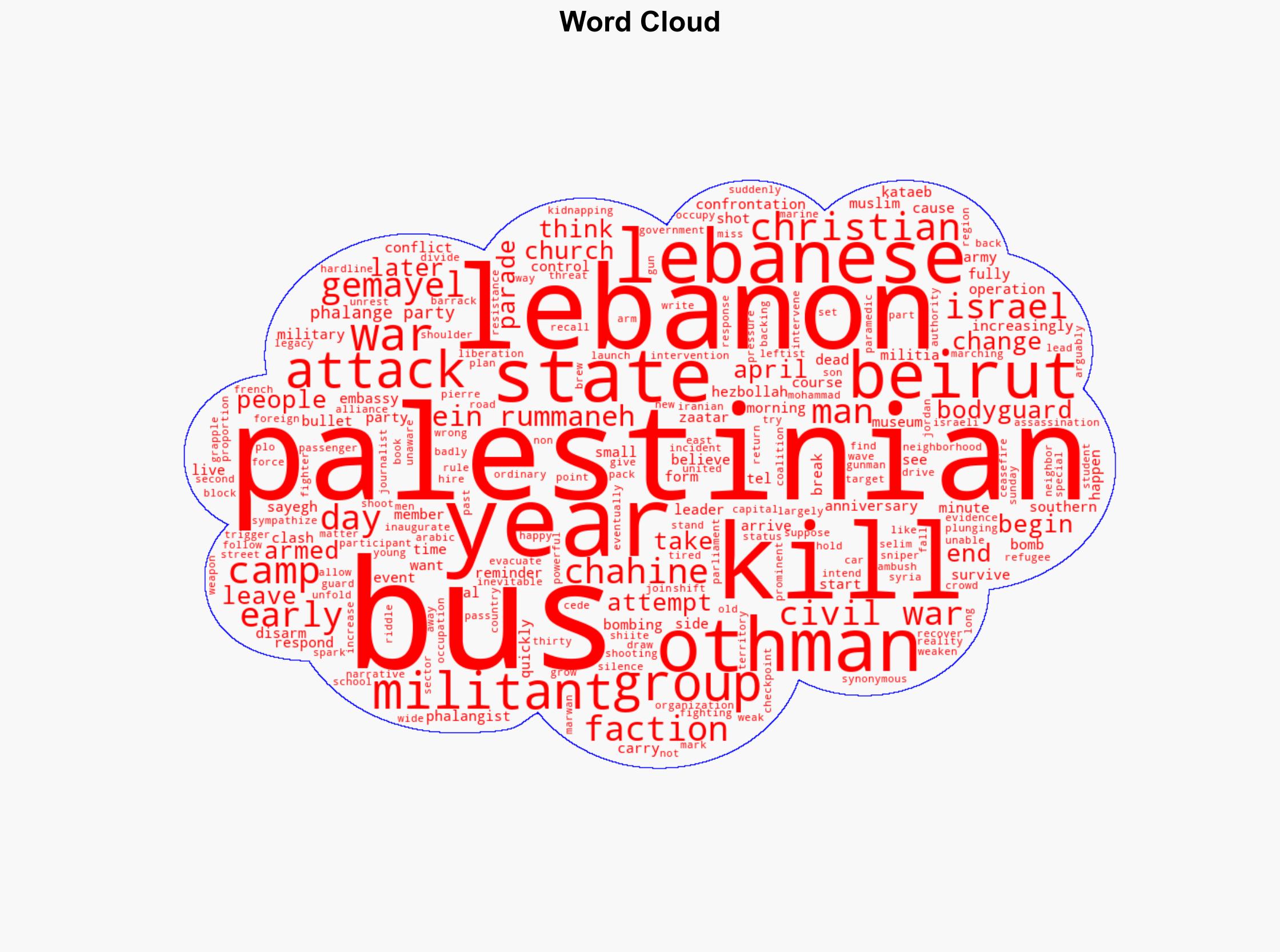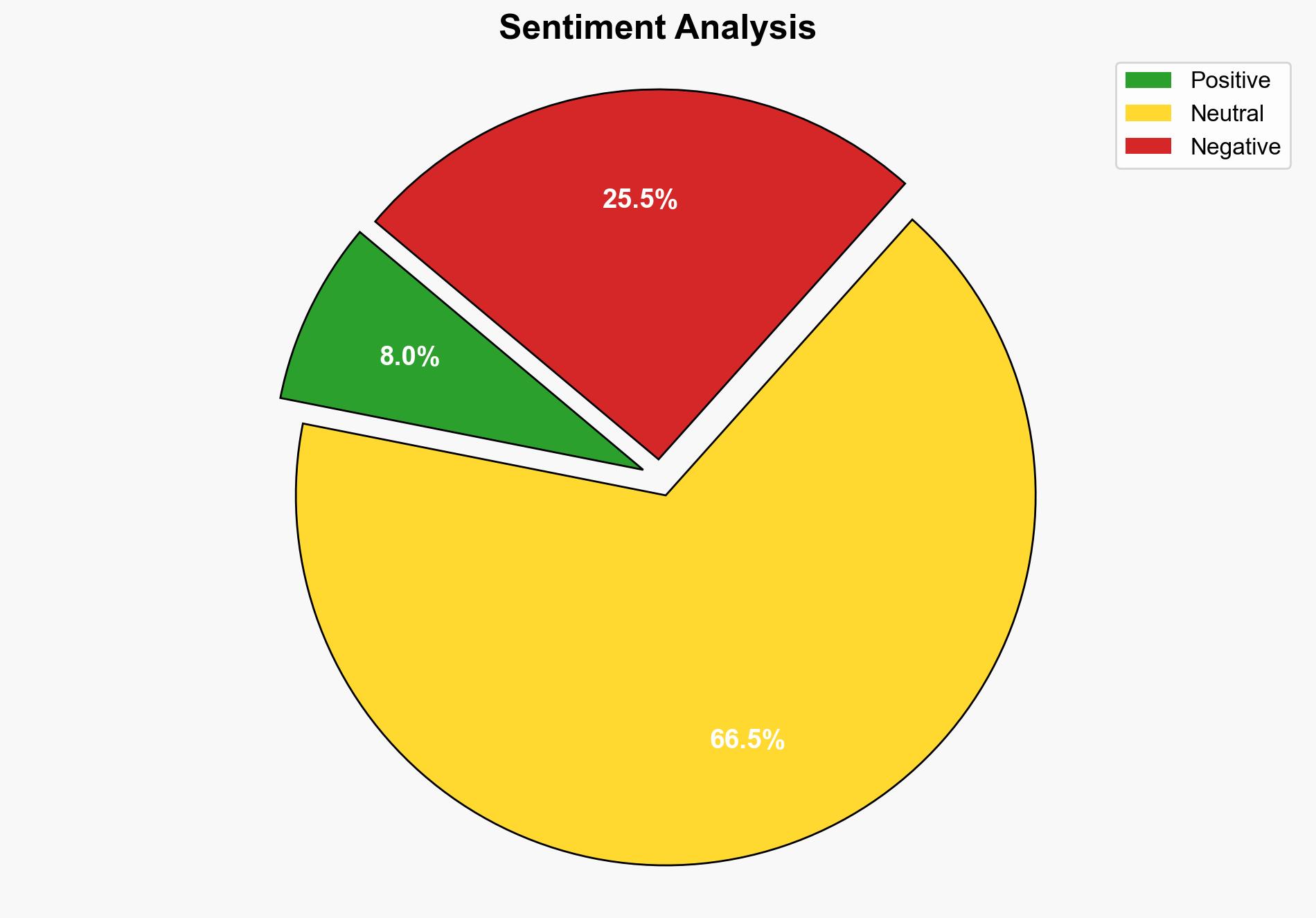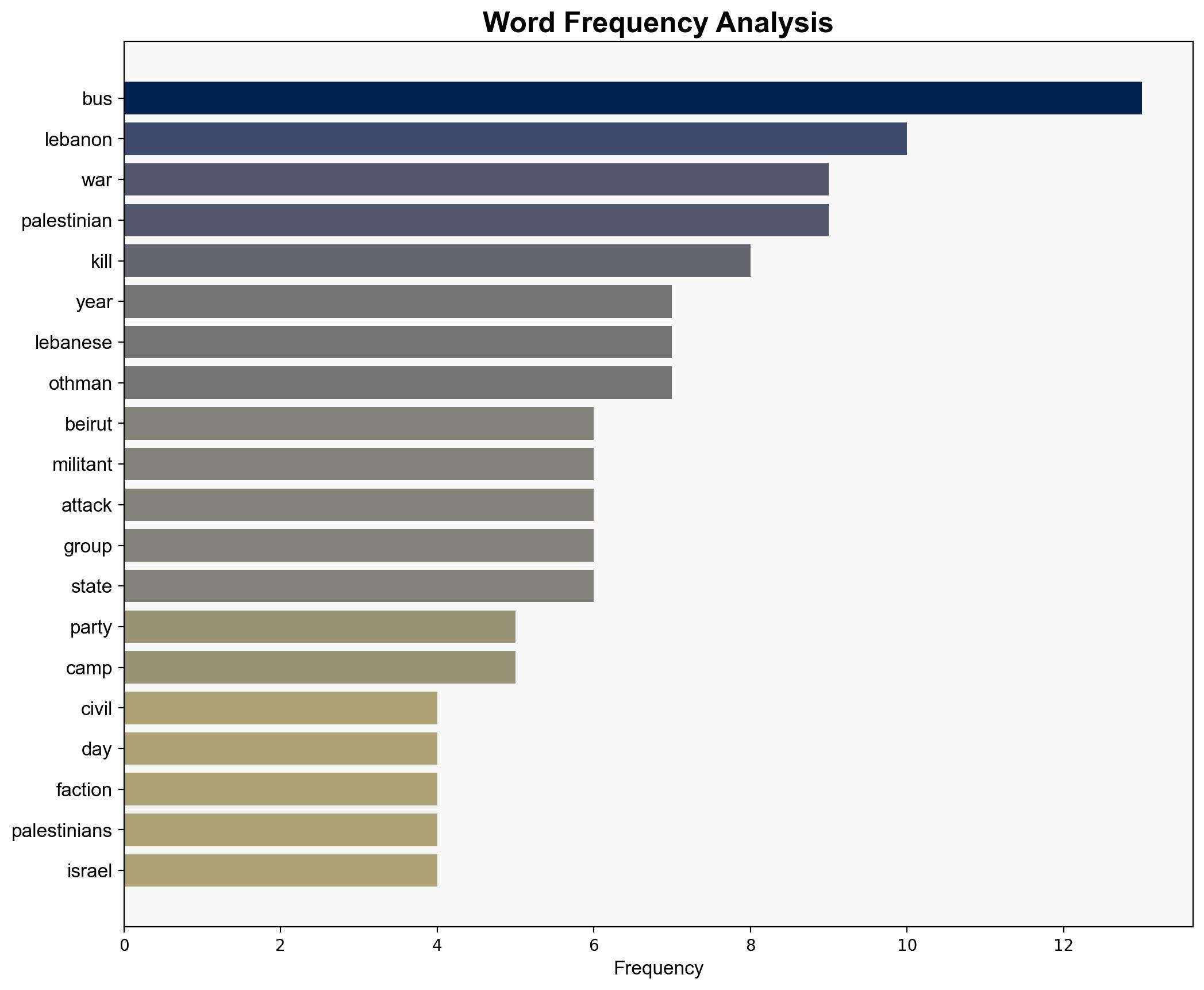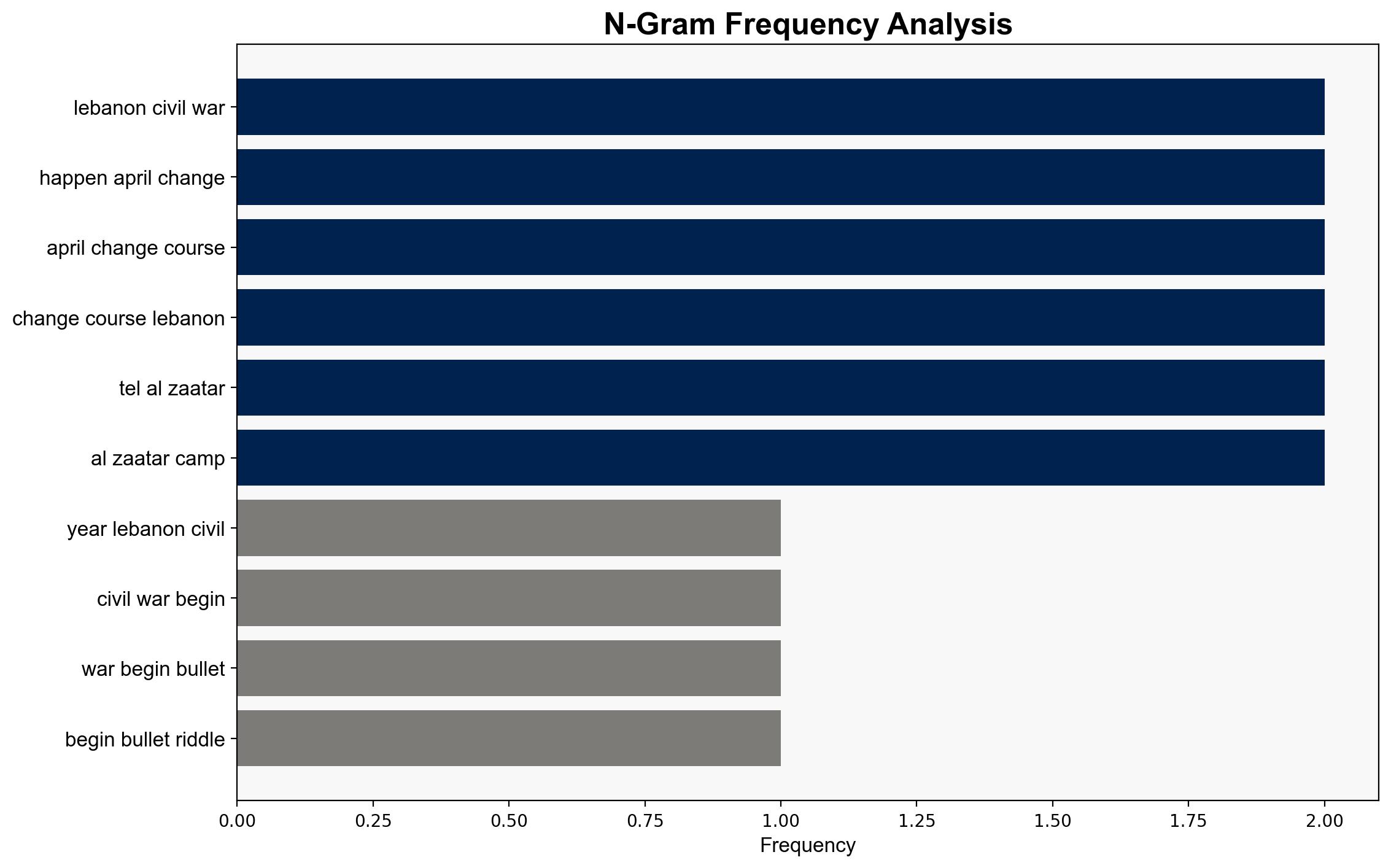50 years after Lebanon’s civil war began a bullet-riddled bus stands as a reminder – ABC News
Published on: 2025-04-13
Intelligence Report: 50 years after Lebanon’s civil war began a bullet-riddled bus stands as a reminder – ABC News
1. BLUF (Bottom Line Up Front)
The Lebanese civil war, initiated on April 13, 1975, remains a pivotal event in Lebanon’s history, with long-lasting impacts on its socio-political landscape. The conflict resulted in approximately 150,000 deaths, 17,000 missing persons, and significant foreign intervention. The anniversary of the war serves as a reminder of unresolved tensions and the need for reconciliation and reform to prevent future conflicts.
2. Detailed Analysis
The following structured analytic techniques have been applied for this analysis:
General Analysis
The Lebanese civil war was triggered by a complex interplay of internal and external factors, including sectarian tensions, foreign interventions, and regional conflicts. The incident on April 13, 1975, involving a bus attack, exemplifies the deep-rooted divisions and the volatility of the period. The event highlighted the fragile nature of Lebanon’s political and social fabric, which remains susceptible to similar triggers today.
3. Implications and Strategic Risks
The legacy of the Lebanese civil war poses ongoing risks to national security and regional stability. Sectarian divisions continue to influence political dynamics, while economic challenges exacerbate social tensions. The potential for renewed conflict remains, particularly if underlying grievances are not addressed. The presence of foreign actors and their interests further complicates the situation, posing risks to both regional and international security.
4. Recommendations and Outlook
Recommendations:
- Promote national dialogue and reconciliation efforts to address historical grievances and foster unity.
- Implement reforms to strengthen political institutions and ensure equitable representation across sectarian lines.
- Enhance economic development initiatives to alleviate poverty and reduce socio-economic disparities.
Outlook:
In the best-case scenario, Lebanon achieves political stability and economic recovery through comprehensive reforms and international support. In the worst-case scenario, unresolved tensions lead to renewed conflict and further destabilization. The most likely outcome involves a protracted period of political maneuvering with incremental progress towards stability.
5. Key Individuals and Entities
The report mentions significant individuals such as Mohammad Othman, Pierre Gemayel, and Marwan Chahine. These individuals are central to the narrative of the events of April 13, 1975, and their perspectives provide valuable insights into the historical and ongoing implications of the Lebanese civil war.





